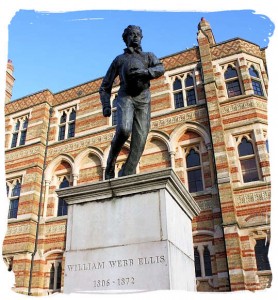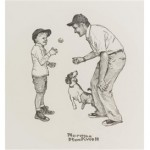[Shorty: 3 mins. Full story: 20-minute read. Tea time.]
The blank screen intimidated me. So did my own inadequate expressions of friendship, and the futility of making up for them with words of inadequate tribute after his passing. I filled the emptiness with things I had written under no expectation or goal except to tell somebody. Describing Karl’s departure to Dave (who knew him, and his family) or Louise (who didn’t) – that was necessary, urgent, and without the chance to overthink. Easy.
(That was in October. I didn’t think my written farewell to a friend would be excruciating – I’d had months to prepare and several hospital visits. I’d said my goodbyes, hoping that he heard them at some level. But here I am, in the middle of a grey and chilling December, our tenth month of living small in the midst of an Earth-wide pandemic, and finally I’m ready to punch ‘Publish’ after fitful months of squeezing words from one of life’s bitter fruits.)
My blood brother and sisters are living, so lucky me. Fifteen years back, I was startled (though not surprised) to lose what felt an awful lot like the good kind of Big Brother. “Donny’ coached and quietly guided me early in my circuitous approach to manhood; I later worried over and covered for and, maybe, helped him a little, in his final years of circling the drain. He was a basketball coach who gave far more to the game and his players than it or they would return to him. Rest, Don.
This farewell also began with basketball. Again, that ever-so-American game drawn up by a displaced Canuck foregrounds another bit of Howdy family history, this time a gradually-acquired Younger Brother. I first knew Karl King when he was that southern Ontario rarity, a 1980s small-town hoopshead, and I was learning to teach English and coach high school ball. The good news: we got much farther than basketball in the ways that we knew each other, though until recently we still annoyed our puck-centric buddy Mike with hoops chatter. The bad news is that he’s gone, as we were beginning to deepen and better understand what bound us together. Worse, he has left behind a surprised and surprising second wife, widowed a bewilderingly short time after love and devotion suddenly bloomed. Karl’s mother has now buried her eldest, and his genuine siblings mourn the eldest child. Also pacing about is Karl’s 17-year-old son, slowly becoming aware that his pops might’ve been more than he suspected.
This is what I wrote to Dave to share with other retired staff of that 1980s rural high school, the Home of the Hurricanes, who had just heard of his death:
Karl suffered a shocking double-diagnosis of two cancers, one of them advanced and rare, early last fall. He and his second wife Savinna were a sweet if doomed story (they weren’t married that long ago) as they went together through all the rigours of treatment, hopeful possibilities and painful reverses. He went home from St. Joseph’s Hospital to die at home on the Credit Reserve, directly across Indian/Town Line Road from the house where Max and Karen raised him. He found great solace and inspiration in marrying the Anishinaabe heritage he had via his father and grandfather (and which he explored deeply and passionately), with his embrace of the Baha’i Faith. He was a gentle soul, a whip-smart mind, a helluva teacher, a man of the people and a global citizen.
I jump ahead to this piercing irony: on the very day that he died – October 13, 2020, the first day of school after the long weekend of Canadian Thanksgiving – the Chief of the Mississaugas of the Credit appeared on Karl King’s doorstep. (Lots of Kings on the Credit. Saults. Laformes.) The “New Credit Eagle”, as Karl’s email address proclaimed him, had just come home from weeks of palliative care in a Hamiton hospital to spend his last days. Chief Laforme was be-ribboned in the formal attire of his office, and he had just missed out on his intention to confer honour upon Karl while he yet lived. I can hear Brother King having a quiet chuckle about the timing, but it tore me up when I heard about it.
Reading the letter from the Mississaugas of the Credit First Nation (MCFN) eased my heart: “has worked to increase the quality of life of our Community”; “significant and continuous service”; “promote[d] health and healing”; “role model for young people”; “ongoing dedication to teaching our young people about their culture and heritage”; “demonstrates integrity, generosity of spirit and collaboration”; and finally, its tribute to Karl’s demonstration of “the Seven Grandfather Teachings of Wisdom, Love, Respect, Bravery, Honesty, Humility and Truth”. Covid-19, unsurprisingly, had delayed the MCFN Council’s process. They had hoped for some form of public ceremony. The letter Chief Laforme delivered spoke of possible media availability – it’s poignant, and given how long and how sturdily Karl had hung on before his sudden dip in the previous months, perfectly understandable. Sigh. The MCFN had everything right but the timing. That wasn’t the only temporal glitch, even beyond the obvious fact that Karl died before he reached his 52nd birthday.
That’s the short version. If you’re willing, I’d like you to know more.
+++++++++



